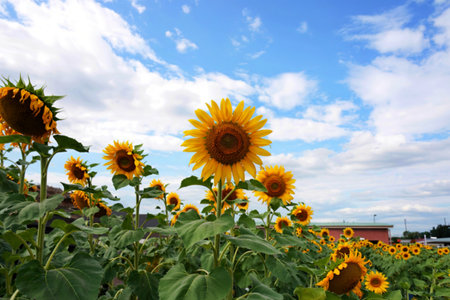The Significance of the Summer Solstice in British Tradition
Across the United Kingdom, the summer solstice has long held a special place in both historical and contemporary culture. Marking the longest day and shortest night of the year—usually around 21st June—the solstice is a time when communities come together to celebrate light, warmth, and new beginnings. At iconic sites such as Stonehenge in Wiltshire, thousands gather at sunrise, embracing ancient traditions that date back millennia. The alignment of the stones with the rising sun remains a powerful symbol of renewal and connection to the natural world. Elsewhere in Britain, from the windswept hills of Scotland to village greens in Cornwall, people observe this day with rituals ranging from early morning walks to open-air music and dance gatherings. The summer solstice is not only about reverence for history; it also embodies a collective appreciation for nature’s cycles and the optimism that comes with midsummer. In modern British society, these celebrations blend spiritual reflection with communal joy, offering an opportunity to pause, connect, and harness the season’s unique energy.
2. Fundamentals of Feng Shui: A British Perspective
Feng Shui, the ancient Chinese art of harmonising spaces, centres on the flow of energy—known as “Qi”—to promote wellbeing and prosperity. When adapting these principles for the unique context of British homes, landscapes, and climate, it is essential to focus on practical steps and local resources. In Britain, the interplay between historic architecture, variable weather, and lush gardens offers both challenges and opportunities for effective Feng Shui practice.
Key Feng Shui Concepts Adapted for Britain
At its core, Feng Shui involves balancing the five elements (wood, fire, earth, metal, water), optimising natural light, and arranging furniture to encourage free movement of energy. While traditional Feng Shui often references compass directions based on solar patterns typical in China, a British adaptation prioritises seasonal light changes and the compact nature of many UK homes.
| Feng Shui Principle | British Adaptation |
|---|---|
| Light & Air Flow | Maximise daylight by using lighter curtains; regularly open sash or casement windows to refresh Qi. |
| Five Elements | Use locally sourced materials: oak (wood), brick (earth), recycled metal fixtures (metal), garden ponds or birdbaths (water), candles or fireplaces (fire). |
| Furniture Placement | Avoid blocking bay windows; position sofas to face natural light for enhanced mood during long summer days. |
Locally-Sourced Solutions
The British climate—with its frequent rain and mild summers—calls for thoughtful use of indoor plants that thrive in lower light conditions, such as ferns or peace lilies. Incorporate stonework from local quarries in garden paths to anchor earth energy. For water features, collect rainwater for small fountains or wildlife ponds to integrate sustainability with positive energy flow.
Practical Application: Harnessing Local Energy
To truly harness Summer Solstice energy within a British context, focus on adjusting your living space to capture the longer daylight hours. Swap heavy winter décor for lighter textiles in shades inspired by British wildflowers—bluebells, poppies, or foxgloves—and arrange mirrors to reflect evening sunlight deeper into your home. These subtle yet effective methods ensure that traditional Feng Shui wisdom resonates authentically with British lifestyles and environments.

3. Preparing Your Home for the Longest Day
As the summer solstice approaches, British households can benefit greatly from thoughtful preparation to welcome and amplify positive energy. Rooted in both practical and cultural traditions, these step-by-step suggestions blend classic UK home habits with Feng Shui principles for an uplifting solstice atmosphere.
Step 1: Begin with a Thorough Clean
Start by giving your space a proper clean, in true British fashion. Focus on dusting shelves, wiping windowsills, and hoovering carpets. Pay attention to corners and neglected spots where stagnant energy may linger. Involving the whole family is typical—make it a cheerful group activity with some upbeat tunes, perhaps even a bit of Britpop.
Step 2: Declutter with Purpose
Channel the spirit of a traditional spring (or early summer) clean by sorting through belongings. Donate unused items to local charity shops—a quintessentially British way to give back while clearing space. Organise bookshelves, tidy shoes in the hallway, and recycle old magazines or papers. This not only frees up physical room but also symbolically makes space for new, positive energy as the sun reaches its zenith.
Step 3: Maximise Natural Light
The solstice is all about embracing sunlight, so ensure your home welcomes in as much daylight as possible. Pull back heavy curtains—consider swapping them for lighter fabrics if you have them—and give your windows a good wash inside and out. Arrange mirrors strategically to reflect natural light deeper into rooms, a trick often used in cosy British cottages to brighten darker spaces.
Step 4: Refresh Soft Furnishings
Switch out dark throws or cushions for lighter-coloured textiles to echo the seasons brightness. Fresh linen or cotton covers feel crisp and align well with both British taste and Feng Shuis preference for natural materials.
Step 5: Incorporate Seasonal Touches
Add vases of locally grown wildflowers or fragrant herbs like lavender and mint to key areas such as the kitchen or sitting room. These simple touches connect your household to the landscape and help circulate fresh energy throughout your home during this potent solar moment.
Together, these approachable steps allow any British household to prepare their living space for the longest day—balancing tradition with mindful intention, all while maximising the unique vibrancy of summer solstice light.
4. Gardens and Outdoor Spaces: Channeling Qi through Greenery
British gardens and patios offer a unique opportunity to harness the abundant yang energy of the summer solstice, blending traditional Feng Shui principles with local horticultural wisdom. The aim is to channel vital Qi (energy) by arranging outdoor spaces thoughtfully, selecting native plants, and incorporating symbols that resonate with this pivotal day.
Arranging Outdoor Spaces for Optimal Qi Flow
According to Feng Shui, open, uncluttered paths allow energy to circulate freely. In British gardens, curved pathways or meandering stepping stones are preferable over straight lines, which can create harsh energy. Arrange seating areas in a way that encourages conversation and relaxation, ideally facing east to welcome the rising sun on the longest day. Avoid placing benches or tables directly in line with garden gates or doors—this helps prevent Qi from rushing out of your space.
Plant Selection: Embracing Local Flora
Choosing native British plants not only supports local biodiversity but also aligns your garden with the natural rhythm of its surroundings. Here’s a simple reference for plant selection based on their Feng Shui attributes and seasonal relevance:
| Plant | Feng Shui Attribute | Solstice Symbolism |
|---|---|---|
| Lavender | Calm, protection | Purple flowers evoke spiritual awareness and healing |
| Rosemary | Cleansing, vitality | Aromatic leaves symbolise remembrance and clarity |
| Hawthorn | Heart energy, boundaries | Traditional May blossom associated with renewal |
| Daisies | Purity, new beginnings | White petals reflect sunlight and positivity |
| Sunflowers (where climate permits) | Yang energy boost | Face the sun, amplifying solar energy on solstice day |
Integrating Summer Solstice Symbols
The solstice is a time to celebrate light and abundance. Consider placing simple stone circles or candle arrangements in your patio area as a nod to ancient British traditions like Stonehenge. Hang wind chimes in gentle corners to disperse stagnant energy and invite harmonious sounds. Using lanterns or solar lights along pathways symbolises guidance and illumination—key themes for the longest day of the year.
Sustainable Practices for Lasting Energy Flow
Sustainability is integral both to modern British gardening and authentic Feng Shui. Use rainwater collection barrels, mulch borders with organic material, and incorporate bug hotels or bird feeders to create a balanced ecosystem. These practices reinforce harmonious Qi flow while respecting the land’s seasonal cycles.
5. Solstice Rituals and Mindful Practices
The summer solstice, with its abundance of daylight, offers an ideal moment to cultivate mindful rituals rooted in British tradition. Embracing this seasonal energy can be both grounding and invigorating, drawing on time-honoured customs while incorporating the principles of Feng Shui for balanced living.
Tea Rituals: Mindfulness in a Cup
Few things are as quintessentially British as the ritual of tea. During the solstice, elevate your daily cuppa into a mindful ceremony by selecting herbal blends such as chamomile or mint, which promote clarity and calm. Prepare your tea with intention, noticing the warmth of the pot and the aroma rising from the cup. Enjoy your brew in a sunlit spot near a window or in your garden—this aligns with Feng Shui’s encouragement to harness natural light and connect with nature’s cycles.
Countryside Walks: Recharging Amongst Nature
A solstice walk through the British countryside—whether along rolling hills, ancient woodlands, or village lanes—offers a chance to absorb the heightened yang energy of this special day. Walking mindfully, pay attention to birdsong, shifting shadows, and the gentle breeze. In Feng Shui terms, this is a way to invite positive qi (energy) into your personal space by physically engaging with the landscape. Bring home a small natural token, like a pebble or wildflower (always collected respectfully), to symbolise renewal and connection within your home environment.
Integrating Rituals into Daily Life
To truly harness solstice energy, consistency is key. Begin each morning by opening your windows wide to welcome fresh air and sunlight—a simple act that refreshes both mind and home. Set aside a moment for gratitude during your afternoon tea or evening stroll, reflecting on personal growth since the last solstice. These mindful practices, inspired by both British custom and Feng Shui philosophy, help anchor you in the present while encouraging positive shifts in energy throughout your living space.
6. Maintaining Summer Solstice Energy Beyond the Day
The transformative energy of the summer solstice need not be limited to a single day; it can be woven into daily life, fostering harmony and balance throughout the year. Blending traditional Feng Shui principles with familiar British routines is both practical and rewarding.
Integrating Natural Light Year-Round
After experiencing the abundance of light on the longest day, make it a habit to keep windows clear and unobstructed, allowing natural daylight to flow in even on cloudier days. In true British fashion, embrace lighter curtains or blinds during summer months and position mirrors strategically to reflect precious sunlight deeper into your home. This simple adjustment maintains yang energy and lifts spirits well beyond midsummer.
Seasonal Decluttering and Organisation
Inspired by the clarity that comes with solstice rituals, carry forward a tradition of regular decluttering—a cup of tea in hand makes this task more pleasant! Prioritise open walkways and tidy spaces, especially near entryways, to support healthy chi movement and a welcoming atmosphere. Donate unused items or pass them along at local charity shops, aligning with both Feng Shui wisdom and cherished British values of community sharing.
Sustaining Connection with Nature
British gardens, patios, or even a modest window box can serve as ongoing sources of solstice energy. Continue nurturing plants, tending to herbs like rosemary or mint—favourites in both Feng Shui and UK kitchens. These living accents encourage growth and renewal through every season. For urban dwellers, regular walks in nearby parks or countryside connect you to earth’s cycles, fostering inner calm and perspective.
Mindful Adjustments for Everyday Harmony
Simple acts such as airing rooms each morning or rotating artwork to reflect seasonal changes help maintain vibrant yet balanced environments. Introduce cheerful touches—fresh flowers from a local market or a bowl of ripe summer berries—as reminders of abundance. Keeping these practices regular gently integrates ancient wisdom into the rhythm of British daily life.
Conclusion: A Lasting Solstice Spirit
By embracing small but thoughtful Feng Shui-inspired habits within your home, you sustain the uplifting energy of the summer solstice all year round. The blend of tradition and practicality fits seamlessly into modern British routines, supporting wellbeing long after the sun has set on the longest day.


